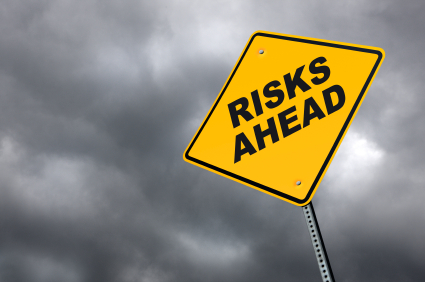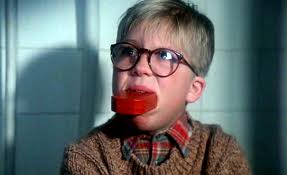I had coffee with a friend from the security industry yesterday. I thought I was coming to offer feedback on something having to do with the profession. Then he told me about a mental-emotional problem.
Mood music:
[spotify:track:4DA95pyBe6QORPGvTEuMWQ]
He told me he had a bunch of medical tests and they discovered that a small corner of his brain doesn’t work as well as it should. The result is that his short-term memory frequently takes a dive.
There are far worse problems to have. But his main concern is that it’s keeping his career from going where he wants it to.
We went back and forth about whether he should make his condition public or whether he should pursue other medical options.
As I sipped my iced Starbucks it became clear that something else was going on.
His biggest problem, I discovered and told him, is that he’s held back by fear — fear of what might happen if his short-term memory acted up in the midst of a job he really wanted to be doing.
He admitted that his recent career moves have involved a lot of playing it safe, doing things where there’s the least opportunity for failure at the hands of his mental tick.
I’ve been down this road before. And you know what? Playing it safe never helps. In fact, it just makes things worse.
Several years ago, when it became clear to me that my brain didn’t work normally, fear engulfed me until my self esteem was reduced to an ash pile. I held back in my work as night editor of The Eagle-Tribune. I tried playing it safe, never going toe to toe during disagreements with other editors.
Then I decided that the solution was to get out of there and find something less stressful to do. I opted to go back to straight reporting and went to TechTarget. Fortunately, the job turned out to be far more challenging than I expected. I realized this right at the time I decided to tackle my mental illness head on.
Luckily, my boss was a nurturing soul who was willing to let me go for the throat and get better. Miraculously, my work didn’t suffer. In the years to come, in fact, my workmanship would get better.
Now I do a lot of stuff in my job that’s out of my comfort zone. I give talks in front of groups of people. I get on airplanes. I venture an opinion on topics that I know will draw heavy disagreement. I give my boss a hard time when I don’t agree about something.
A few years ago, the very idea of doing those things would have scared me into an emotional breakdown.
I’ve screwed up along the way. But I’m still here.
I do my job well enough, often enough. And the more I succeed, the more confident I get.
Had I played it safe because of the things that might have gone wrong because of my OCD and anxiety, I wouldn’t be doing what I love today.
It’s not worth worrying about the mistakes you might make. You WILL make mistakes. And most of the time, you’ll be the only one to notice.
When my kids worry about making mistakes, I play them some Def Leppard and remind them that a one-armed drummer makes mistakes, but that all you can hear is him driving the heartbeat of the song despite a missing limb.
He could have retired from music and that would have made his life worse.
But he took a chance and designed a drum kit that helped him get past his problem.
Call me overly idealistic. Tell me I’m blowing sunshine up your collective asses.
It’s what I believe. Because I’ve been down this road.
My life today is far from perfect. It can get messy at times.
But it beats the hell out of playing it safe.







 When I saw his picture, my first thought was, “Man, he was young.” In fact, he died just shy of his 40th birthday.
When I saw his picture, my first thought was, “Man, he was young.” In fact, he died just shy of his 40th birthday.